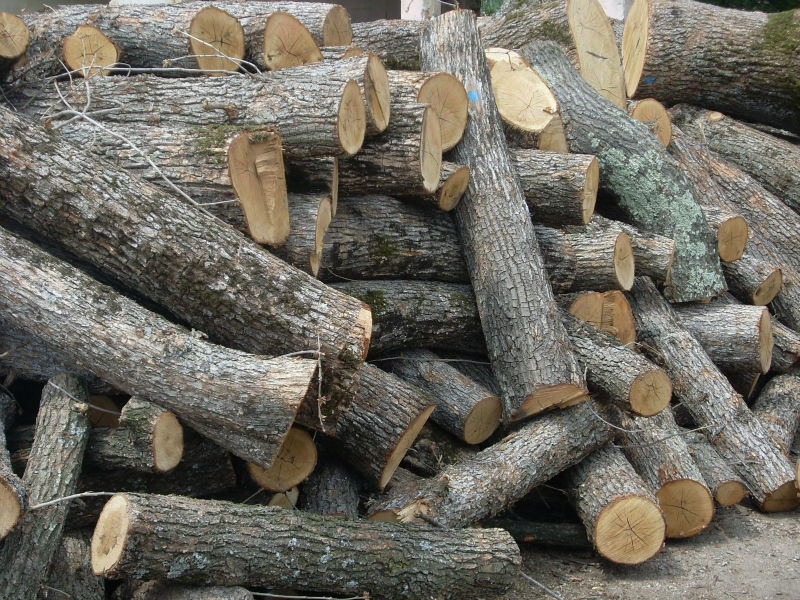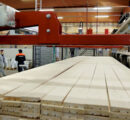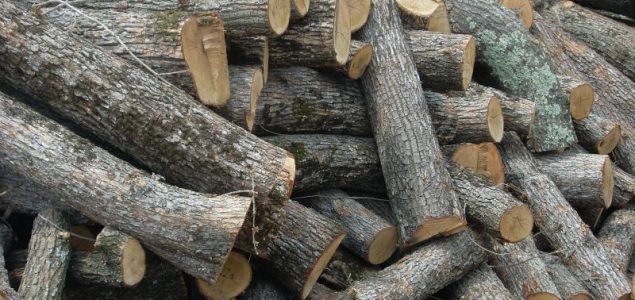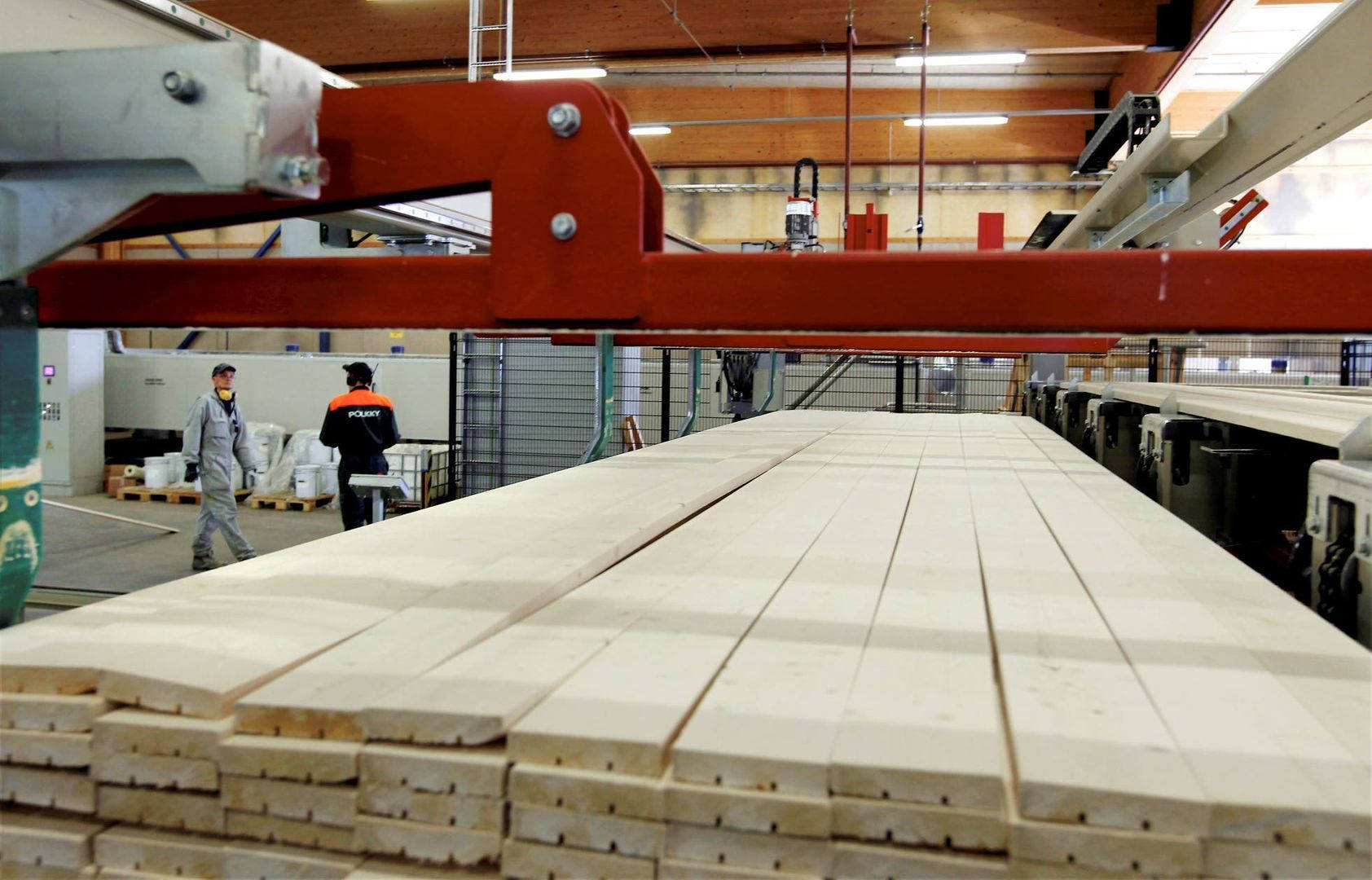The surge in gas and electricity prices has sparked interest in Europe for a long-forgotten fuel, common firewood. Excessive demand for firewood spans the continent, from the Baltic states to the UK. Firewood is becoming the “new oil” for Europeans, which is causing some new social phenomena in the EU.
A particularly prominent situation has emerged in Estonia, which is now looking for ways to ensure “energy independence from Russia” as declared by the authorities. Officials expressed confidence that in the future Estonia will have more “windmills,” or solar panels on the roofs of houses and factories.
Another suggestion on how to overcome the energy crisis has to do with… ash alder, which makes up 6.6% of Estonian forests. According to Arvi Toss, chief expert of the Forestry Department of the Ministry of Environment, there are currently 5.5 million cubic meters of ash alder in state-owned forests and 26 million cubic meters in private forests. That’s enough to replace Russian gas, they say. Therefore, the alder must be chopped, ground into crumbs, and sent to the boiler room.
“Let’s be an alder energy superpower”
As Toth assures, Estonia has so much ash alder that its harvesting should not be restricted by environmental regulations. Toss also added that the state does not subsidize logging alone. But the problem remains with the conversion of the country’s operating boiler rooms – from gas to firewood. “There is definitely a need for investment here,” said Jaanus Aun, executive director of the Federation of Private Forest Owners. Jaanus Uiga, director of the Energy Department at the Ministry of Economy and Communications, said the demand for wood chips in boiler rooms has exceeded supply. “Current prices are prompting people to build boiler rooms that can use wood chips. But these investments take time, at least a year,” Uyga added.
The Estonian Ministry of Economy finances the construction of the wood chip boiler house through investments from EU Structural Funds. And now netizens in Estonia are joking that their country will soon become an “energy superpower” and be able to supply ash alder to other countries.
At the same time, firewood prices in Estonia have risen. “At the moment, the price still varies from region to region and also depends on the type of wood. For example, if we are talking about alder cubic meters of firewood, then it is 70, 75, already 85 euros in some places, as we have in the That’s what you hear on the north coast of the country. A year ago, prices were half as low,” said Kristjan Paapsi, hardwood sales manager in April. According to Marina Poltavtseva, a representative of the Estonian National Forest Management Centre (RMK), the increase in firewood prices started last year when electricity prices rose, leading to higher costs for logging operations. “Then deliveries from Russia and Belarus stopped and the interest in the timber from the Baltic countries increased. It is also necessary to mention last spring’s ban on logging on private forest territories,” explained Poltavtseva.
At the end of September last year, the price of a cubic metre of wet alder in Estonia’s Viljandi county was 35 euros and a cubic metre of dry summer firewood was 40 euros. The cost of wet firewood has now jumped to 60-80 euros. And this is far from the limit, producers predict that in winter, the price of firewood can reach 100-150 euros per cubic meter.
“The closer to the peak season, the more expensive the product is”
A similar situation was observed in Latvia, where the price of firewood has doubled and half to triple compared to last year. In this regard, Latvian experts reminded that the purchasing power of residents is not unlimited. “People will see the price of a bag of firewood double, triple or even quadruple. They’re already thinking: maybe it’s more profitable to buy a warm blanket? Think of another way to keep warm, Instead of buying something so expensive,” warns Jānis Slavietis, board member of RaWood Export.
In Lithuania and other Baltic countries, demand for firewood also began to grow last year when residents began receiving shocking heating bills. In this regard, Kestutis Kupshis, a member of the Lithuanian Parliament, pointed out that the country’s inhabitants found themselves in an “energy poverty trap”. Also, as he points out, those who use firewood for heat are generally only marginally better off than those who rely on the central heating system in their apartment buildings.
“Houses are old, firewood is expensive…people are freezing, even though they have complete control over the heat in their houses. If they don’t heat well, they start to hurt. Unsolved energy poverty falls on the shoulders of the health system. on,” complained the expert.
The Baltic states have traditionally been considered one of the most backward in Europe – however, their inherent problems are now clearly felt in the UK. Back in March, The Telegraph reported that the country was facing a major problem. Until recently, Russia supplied the UK with large quantities of wood pellets for heating. The cessation of these supplies caused the price of wood pellets in the country to jump 25-40% overnight to a level of 385 pounds per ton. The situation is further complicated by an increase in the number of fires as people increasingly turn to wood for heating.
This situation can be seen everywhere in the EU. Feature news came from Poland, where authorities told local residents that they had the opportunity to collect branches and dead wood in the forest to use as fuel for heating. True, Michal Gzowski, representative of the Polish National Forestry Ministry, stressed that in order to collect firewood, you must first obtain a permit from the local forestry department. He warned that only wood already in the ground can be harvested, but not growing trees.
“We’ll all collect firewood. Because that seems to be the last thought on how to prevent poverty in Poland, which is what Law and Justice has for us all,” said Donald Tusk, leader of the opposition Civic Platform party, sarcastically.
“Everyone has a last chance – firewood”
Czech portal idnes.cz published a conversation with Zlín city resident Svatopluk Hanak, who fell trees for firewood. “Every morning there are several cars parked in the woods near Zlín: people come to get firewood. The change is huge. Before, almost no one was interested in firewood,” Garnak testified.
Revenues for forest owners and firewood sellers, as well as for fuel briquettes and pellets, have soared recently. “The interest is unimaginable, and in the spring we have never recorded such a large demand for firewood. Now we are taking orders for July,” said businessman Yan Gaiduk. His firewood company used to stock up at the beginning of the year in preparation for the peak sales season that begins in the second half of April. But this year’s season starts in January. “Since the new year, our workload has been 100%, and now it’s 150%,” Gaiduk said.
The employees of the firewood preparation and sales company are now working overtime in the Czech Republic, so it is necessary to recruit temporary additional staff. “Interest has doubled, maybe more. Phones are ringing from morning till night. People have to wait at least a month and a half. In the news, people are being told that electricity is getting more expensive and that there will be no gas. Every Everyone has one last chance – firewood,” said firewood seller Yaroslav Botik.
But firewood prices are also climbing. “I don’t remember prices that high. We haven’t changed prices for three years, and now they’re changing very fast. The reason is that the prices of wood, fuel and electricity have gone up,” Gueduc defended himself. Yaroslav Botic admitted that if earlier he sold a cubic meter of firewood for about 1350 kroner, now – 1900. According to him, this is not a limit – the price may exceed two thousand.
Manufacturers and sellers of boilers, fireplaces and stoves also found themselves in a good position — they were bombarded with orders that they didn’t have time to complete. “Last winter, when energy bills started going up, people were buying mostly stationary stoves and fireplaces, basically anything that could burn wood. In recent weeks, we’ve noticed an increase in demand for heating appliances with heat exchangers ,” said Petr Jurcak, a Czech stove and fireplace trader.
In other words, people are willing to connect wood stoves to their home heating system. “We’re going all out — we’ve got a full order book until the end of October. Today’s lead times from some manufacturers are disastrous,” admits Yurchak. However, there is no absolute happiness in the world – the businessman complained that he and his colleagues faced shortages, also linked to the conflict in Ukraine.
In Germany, woodfuel prices rose sharply in January. It hasn’t gotten better since then – instead, firewood has almost become a luxury. The German publication Agraheute informed that such criminal activities, such as theft of wood from the country’s forestry, have recently been expanding in the country. Entire professional crime syndicates are already doing this, they have trucks equipped with loading cranes.
The publication attributes this fact to the fact that firewood is becoming more and more valuable. The country’s dry hardwood, the most valuable heating material, has sold out in the coming months, with new trades only possible in the fall. Instead, customers can temporarily buy softwood or wet wood, which can then be dried on their own. By the way, this is absolutely necessary – according to the German Federal Emission Control Act, only firewood with a residual moisture content of less than 25% is allowed to be burned.
The post Because of sanctions against Russia, firewood is becoming a new energy source for European countries appeared first on Global Wood Markets Info.






